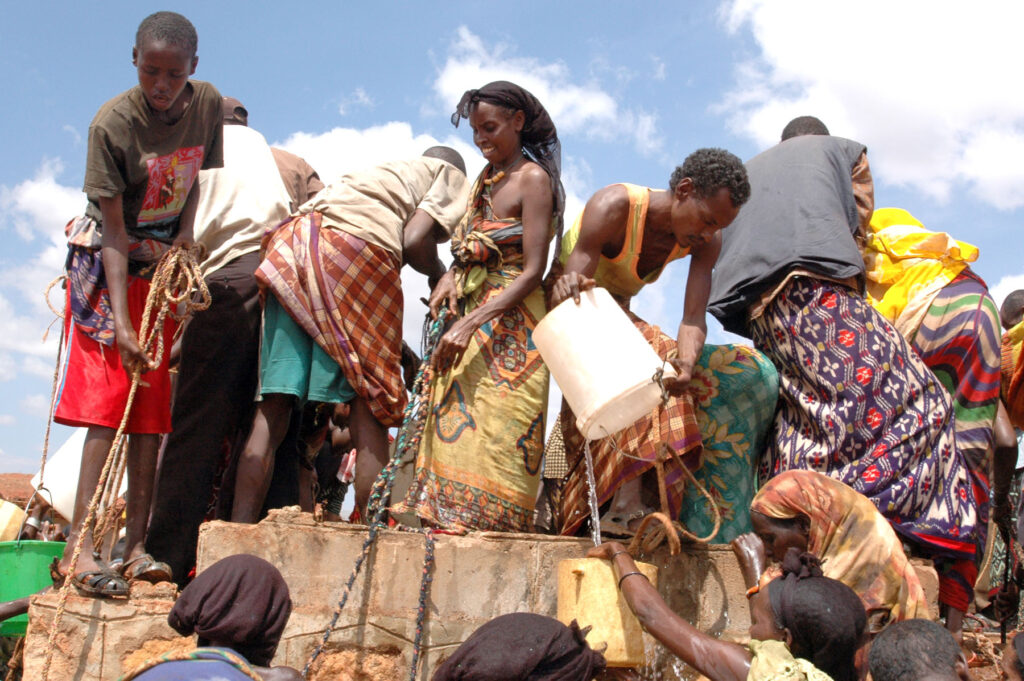
“One Humanity: Shared Responsibility”
In February, UN Secretary General Ban Ki-moon announced the launch of the first ever World Humanitarian Summit (WHS) “One Humanity: Shared Responsibility,” which was held on May 23-24, 2016 in Istanbul. In his remarks, Ki-moon acknowledged that the world is facing the highest level of human suffering since World War II, with over 125 million people currently devastated by disasters and conflict. The summit was attended by government, business and NGO leaders from over 175 nations, and its goals were threefold: (1) reaffirm international commitments to humanitarian aid, (2) initiate actions to better prepare for crises and (3) share practices to ease suffering.
During the WHS, Ki-moon offered an “Agenda for Humanity,” which includes five core responsibilities for action that the international community must collectively commit to in order to help the Global South. These responsibilities were easily agreed upon at the summit but will be much more difficult to implement in reality. While it is encouraging to see a summit that urges collective action to relieve humanitarian crises, it is unlikely that the commitments made will result in any tangible action.
Drought in Ethiopia
To assess this notion, consider the Ethiopian drought.
In the past decade, Ethiopia has seen incredible economic growth and progress. Not only is the nation far ahead of every other African country in meeting their Millennium Development Goals—for example, the state has reduced poverty by a third—but it has also gained status as the fastest growing economy in the world. Through continual investment in infrastructure, progress in primary education enrollment and growth in the agricultural sector, Ethiopia seemed to be on an upward economic spiral—that is, until El Nino devastated the nation and created the worst drought in 50 years.
The drought has cost the nation 90% of its crops in some regions and at least one million cattle, devastating the agricultural sector, which provides employment for 80 percent of Ethiopian workers. As Ethiopians lose jobs, fail to produce food and fall into starvation, it’s becoming evident that the Ethiopian drought crisis may be one of the most devastating effects of El Nino in history.
With their five core responsibilities for action, the WHS urges the international community to take on the task of solving issues like the Ethiopian drought. But it is unlikely that the summit will lead to outcomes that can save Ethiopia from the damaging effects of the drought and help the country maintain its impressive and well-earned economic growth.
Through the lens of Ethiopia, this piece will evaluate how commitments made during the WHS will fail to provide Ethiopians the aid they need, and furthermore, show its inability to solve humanitarian issues on an even larger scale.
1– To Prevent and End Conflict
The first responsibility that Ki-moon calls for is the safety and protection of all citizens by shifting from managing crises to preventing them altogether. What about natural disasters? In Ethiopia, El Nino is an annual weather pattern, but the severity of this year’s drought was nearly impossible to predict. So although major powers are beginning to acknowledge climate change as a global issue—and increasingly funding research and development projects focused on reducing its ramifications —predicting extreme weather patterns in order to prevent them is not yet plausible. Since 1994, 1.3 million lives have been lost due to natural disasters, costing the US alone $2 trillion in economic losses. And developing nations are even more vulnerable to natural disasters, therefore making the “prevention” that Ki-Moon discusses unrealistic.
2– Respect Rules of War
Ki-moon defines the second responsibility as the need to respect and comply with international human rights laws, especially in the context of war. In Ethiopia, ethnic violence is worsening. It has been attributed to the lack of economic and social opportunities, as well as food insecurity. All effects of the current drought. And this is amplified by the influx of ethnic Nuer refugees fleeing the civil war in South Sudan, breeding competition for land and scarce resources. Ethiopia’s refugee crisis has led native protestors to target the international community, accusing the UN of dumping Nuer refugees into their territory. The most recent ethnic clash included the death of 14 Ethiopians and violent attacks on UN and Doctor’s Without Borders buildings and vehicles. The anti-UN sentiments from the Ethiopians makes it unlikely that the international community can implement strategies that would enforce respect of international human rights laws and decrease violence in the nation.
3– Leave No One Behind
The main goal of humanitarian aid is to narrow the gap between developed and less developed nations, to reach out to those furthest behind. Because of the drought, 15 million Ethiopians are expected to suffer from acute malnutrition. If the WHS were true to its word of leaving no one behind, they would commit to sending additional aid to reduce starvation rates in Ethiopia. However, as the drought worsens, the expected financial need is $1.2 billion—only one third of that has been provided thus far. It seems doubtful that the international community can provide the remaining amount to improve the tragic conditions in Ethiopia, considering fundraising has been slow. And if this is the case for Ethiopia, there isn’t much hope for the majority of aid projects in the Global South.
4– Working Differently to End Need
The fourth core responsibility is to transform the way humanitarian crises are being dealt with. While providing aid is effective in reducing the immediate ramifications of global issues, the international community must take proactive steps to avoid conflicts in the long-run by strengthening local leadership and building institutions for sustainable growth. In Ethiopia, droughts, natural disasters and crop destruction will always be an issue. Working differently to end need could mean shifting from a mostly agriculture-based economy to a more manufacture-based one. In a society where 85% of the country relies on crops harvested in Ethiopia, there needs to be movements to diversify the market, to allow more participation in trade. But due to the intensity of the drought, it will be difficult—and probably unlikely— for the international community to initiate economic growth in any sector after so much has been destroyed.
5– Invest in Humanity
In addition to providing the institutions for growth, the last responsibility is to make commitments to invest in capital. This means investments in railways, dams, electricity and most importantly, education. Ethiopia has already experienced rapid growth in education, moving from a one-fifth primary education enrollment rate to only a one-fifth rate of drop out. But this incredible growth is now being threatened. Since the drought began, about 1.2 million Ethiopian children have dropped out of school to help their families fetch water and food to survive. Dropping out leaves children vulnerable to sexual assault, child labor and a lost opportunity to obtain a profitable job and stimulate the economy. Furthermore, as Ethiopians prioritize survival over long term investments such as education, any attempts by the international community to invest in capital will be ineffective. As long as the drought continues, Ethiopians will make day-to-day decisions for survival rather than making sustainable decisions for their future.
Ethiopia is Not the Only One
Ki-moon recently stated, “The World Humanitarian Summit must be for the people living on the frontline of humanity. They count on us. We cannot let them down.” Although his optimism about the WHS is admirable, the key actions suggested are rather ambitious.
With hundreds of millions of people suffering from multiple humanitarian crises, how does the international community plan on prioritizing and addressing the issues? It will be a challenge to fulfill the commitments made at the WHS, leading many to speculate whether or not the UN is making too many promises that it cannot keep. The international community must not only invest millions of dollars into Ethiopia’s drought but must commit to similar actions for everyone across the globe affected by humanitarian crises.
Ki-Moon proposes his “Agenda for Humanity” without a concrete understanding of how nations can logistically coalesce to achieve the goal of substantially reducing human suffering. It is likely that this idealistic “Agenda” will fall far short of what is necessary to ease even just one calamity.
The views expressed by the author do not necessarily reflect those of the Glimpse from the Globe staff, editors or governors.






